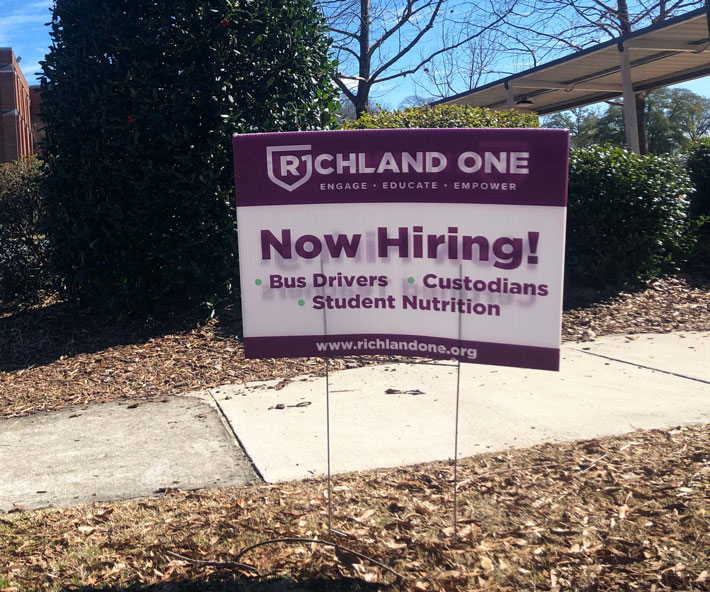In a press conference held last week, Gov. Henry McMaster addressed the state’s education crisis with former State Superintendents of Education Mick Zais, left, and Barbara Nielson, right. Photos by Cora Stone
Three years after 10,000 teachers marched in front of the State House demanding better treatment, significant changes in educator compensation are finally happening in the South Carolina legislature.
Teachers will see a $4,000 starting salary increase after the House approved a budget that included a proposal that would bump the starting salary from $36,000 to $40,000, the largest statewide boost in teacher pay to date.
“We are at the beginning of some really remarkable and far-reaching improvements in our system,” Gov. Henry McMaster said at a press conference Monday.
According to McMaster, the three parts include “simplifying the formula, raising the pay schedule, and providing easy to understand, quick accountability and information on the dashboard.”
This will only affect school districts who currently do not offer a $40,000 starting salary, but the Senate, who is yet to approve the proposal, may add more funding for pay raises for all teachers. McMaster said that “the more money that we can put into education that goes into that classroom is a big step.”
S.C.’s average pay for teachers is currently ranked 40th in the country. With teacher vacancies at an all-time high, lawmakers are hoping that an increase in teacher pay will improve educator retention and recruitment.
Former Superintendent of Education Mick Zais said in the news conference that this “has the potential to transform public education in South Carolina, and move us from near the bottom to near the top of the rankings in the United States.”
According to Lisa Ellis, founder of SC for Ed and leadership teacher at Blythewood High School, salary is a main focus of teacher recruitment and retention.
“You sit there and see this legislation that is coming through, but that’s not an issue if you don’t have a teacher in the classroom,” Ellis said, “and that’s what we’re struggling with in S.C.”
School districts across the Midlands are also offering bonuses in an attempt to retain educators and staunch the flow of educators leaving the classroom. More than 9,000 S.C. teachers have left their positions since the beginning of the 2021-2022 school year.
Last week, Richland School District 1 approved fuel payments of $500 to full-time employees and $250 for part-time employees and in December, a $1,000 signing bonus.
Additionally, Lexington School District 2 is offering $2,500 signing bonuses and Lexington-Richland 5 granted $1,000 appreciation bonuses in November and $50 for every full week they work through the end of the school year.
Dottie Abrams, a science teacher at Hand Middle School in Richland 1, said the the bonuses were a tangible way to tell teachers they are appreciated, but there is still more that needs to be done to address the issue.
“When I feel supported, I am in a better place to support others,” Abrams said. “This is a start and we need to continue with it.
Abrams said that the fuel and retention bonuses will be felt greatly by helping with expenses and bring greater “peace of mind” to those who travel outside of the district to work while gas prices are at an all-time high.
“I’m fortunate that I live close to my school, but people have student loans and other things they have to pay for,” Abrams said.
Richard Lominack, a board member for Richland 1, said that talking to teachers to find out what kind of support they need is the most impactful thing that he can do.
“Things like the fuel bonus and the other bonus we gave teachers are great and they’re needed, but you know, when I talk to teachers, I hear a lot about a lot of other things, especially support, whether it’s reading interventionists or hall monitors, or mental health counselors and social workers,” he said.
According to Lominack, addressing the issue now is crucial.
“I’m worried that we’re going to start next year with a lot of vacancies. And that’s going to be really hard to to address,” Lominack said.





